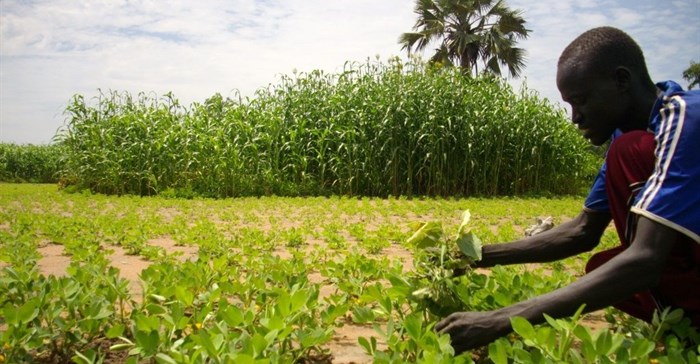
Related






Digging into the past to grow tomorrow: How young people are reshaping SA’s agri sector
Diale Tilo 23 Jun 2025
Top stories

RetailDiageo sells East African Breweries stake to Asahi for $2.3bn
Duncan Miriri and Emma Rumney 1 day



My specific field of interest is education – and even more specifically, education in the field of agriculture or agri-education. As in many industries, both education and agriculture are in need of transformation on the African continent. The question that remains, how do we drive this change? What collective do we use?
I believe the answer lies in agricultural transformation. This, the effective sharing of Afri-skills-sets and methods of farming between existing commercial farmers and their black African neighbors who wish to farm. This also involves the co-development of farms, owned by communities where successful land claims have occurred, but where the land lies undeveloped and unproductive.
New land development companies need to be established. These companies, in shared opportunities with owners of those farms, should lease the farms from those same communities and jointly develop the farms. But of course, agri-transformation also involves local commercial farmers helping their local emerging farmers with structured advice assistance on an ongoing basis. But, critically, all this cannot take place without formal education and training institutions being in place to help.
Having recently launched an agricultural e-learning institution, Agricolleges international, empowering new young learners, as well as upskilling those already involved in the industry in various forms, is our purpose. Our approach is one of transformation at many levels. Transforming the way we think about and deliver education, transforming the level of skills entering the agri-economy, and transforming the capability of even subsistence farmers to deliver far greater results and, thereby, improve food security on the continent through higher yields.
By revolutionising the way that agri-education is delivered in Africa, through an online, cloud-based platform and using a blended-learning approach, we can build the skills and knowledge of people from all walks of life. And in this way, we can turn young aspiring learners into the farmers of the future, farm hands into farm managers and small-scale, emerging farmers into commercial producers.
Think for a minute about two of the major food security issues that have caused mayhem for agriculture in the last few months: the Fall armyworm and avian flu. Although no one is immune to these and other similar issues, the large-scale, commercial farmers have a distinct advantage. They have existing knowledge and experience, the ability to access and share new information about how to combat the unexpected, and the resources to do so. They are also often regulated to ensure that they comply with certain minimum standards, vaccinate against disease and put checks and controls in place to reduce pests without harming the humans that consume their produce.
Small subsistence and informal farmers, on the other hand, have no such luxury. They learn from experience – often the hard way - they have limited access to information and even fewer resources to implement the necessary preventative programmes.
This is where the potential for transformation is huge: in order to counter these and other challenges, small and informal farmers need to change the way they farm, by building their skills, knowledge, and productivity.
For starters, we aim to bring new, passionate young learners into an education platform that allows them to learn online at their own time and pace, provides them with on the ground practical experience and connects them with lecturers and like-minded students from all walks of life. Add to this a group of keen small farmers and farm workers, willing to learn and passionate about growing their production and building their income.
Take these two groups of people and offer them a variety of education courses, from short skills development courses right through to diploma level, and just imagine what the results could be. Greater knowledge and skills, in turn, becomes improved application of those skills, greater productivity, higher incomes and continued opportunities for new learning. Ultimately, even subsistence farmers should be able to know enough to vaccinate against preventable diseases, detect them early and save their livelihoods from collapse.
What agriculture needs is a strong and growing base of young people entering the agri-economy, an emerging set of small farmers and farm workers willing to improve their skills and knowledge, and large-scale producers keen to help their employees grow and develop so that they become aware of developments in technology, agri-sciences, business management and other areas that affect agricultural operations.
We might be too late to help educate today’s small farmers about the Fall armyworm and avian flu, but what about training the next generation of farmers in the significant and critical impact of climate change and how to combat it?
By equipping farmers with the capacity to respond to the changing agricultural environment, through learning, practical training and sharing of best practice, we can help them reach their potential.
Agriculture is a very exciting place to be right now, and through Agricolleges international we aim to put the spotlight back on education in agriculture and attract young talent to create a sustainable future for all.